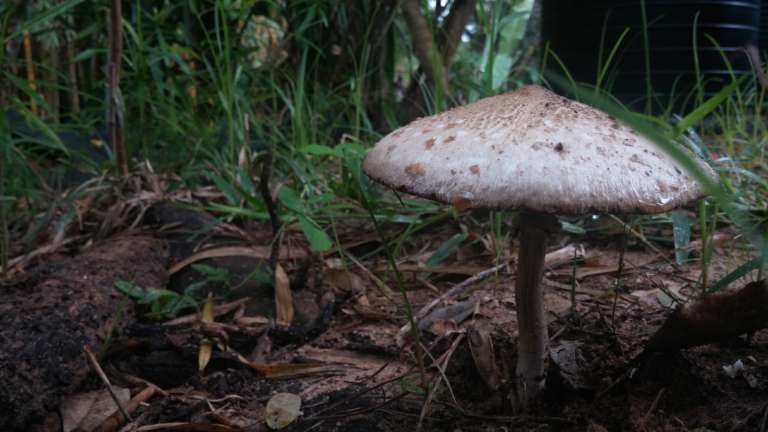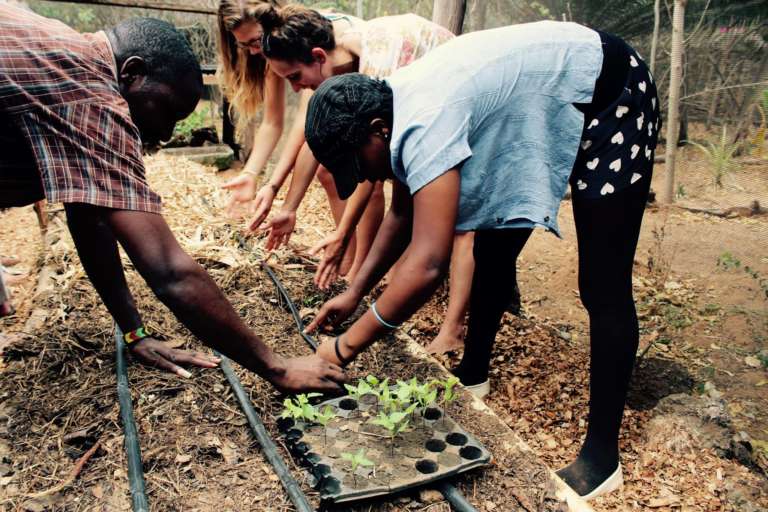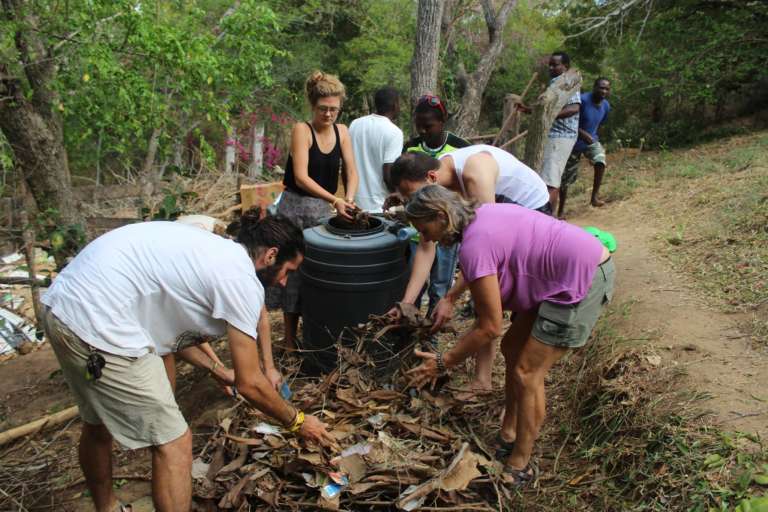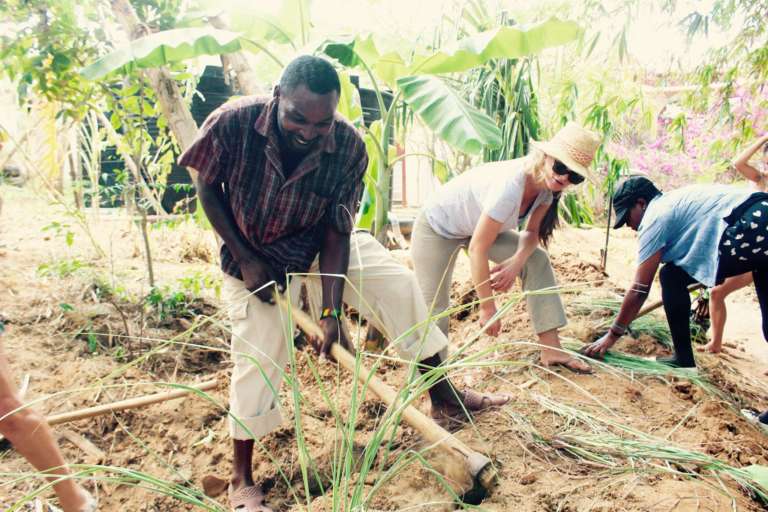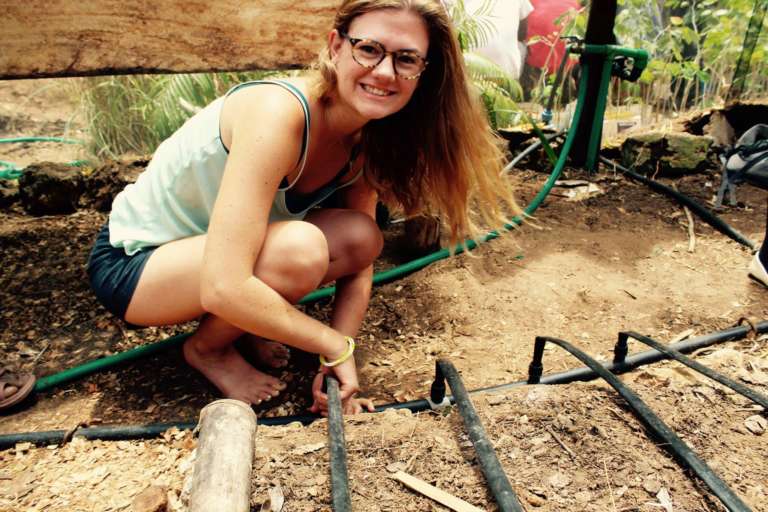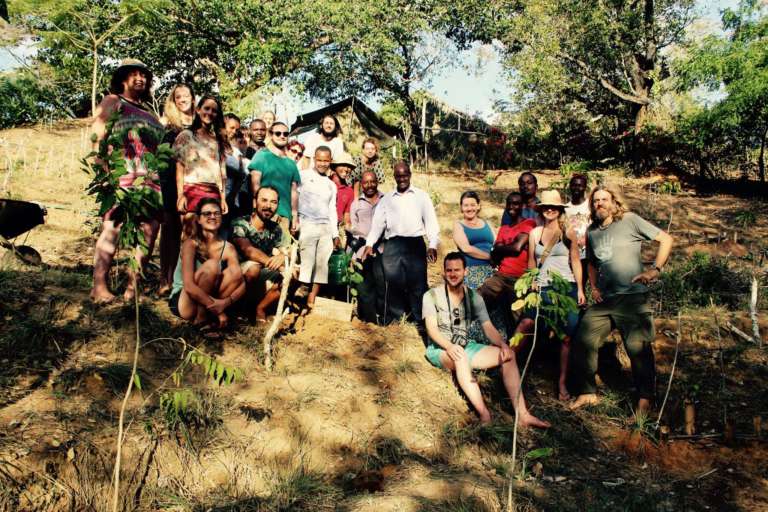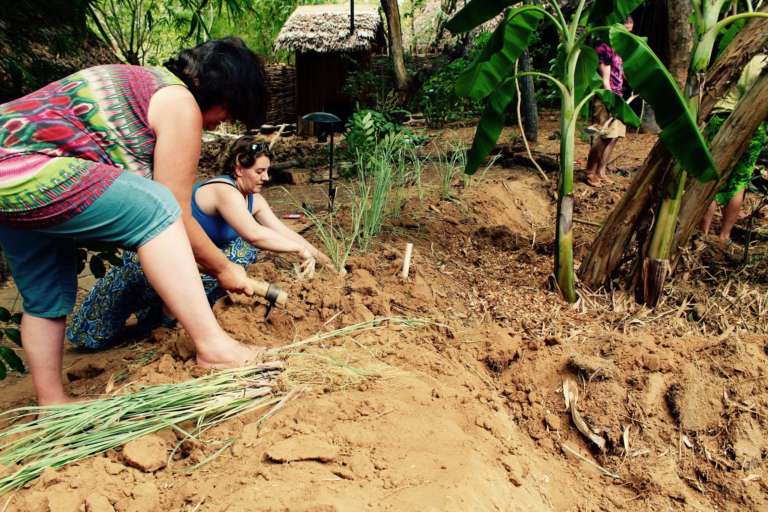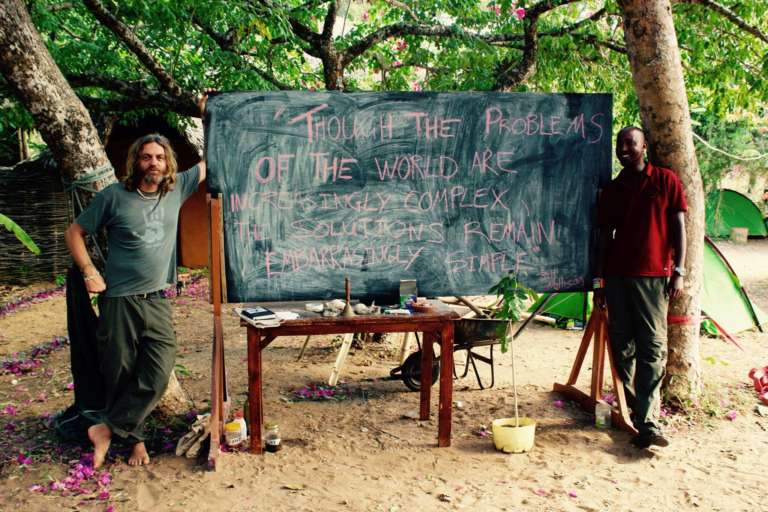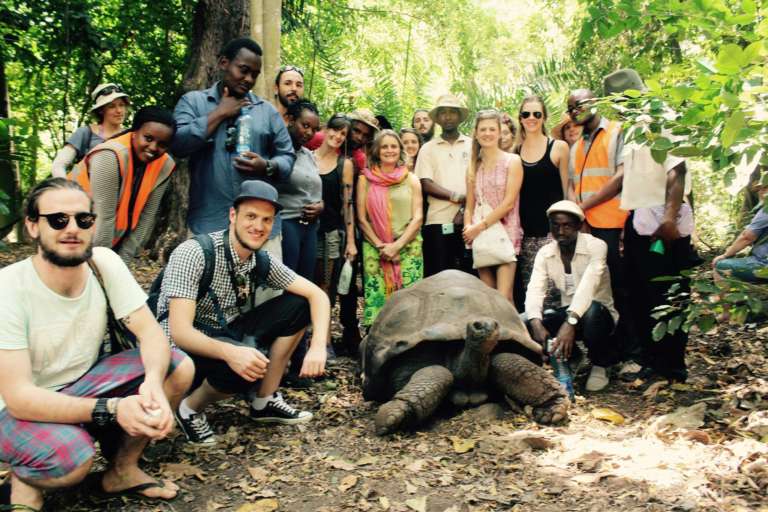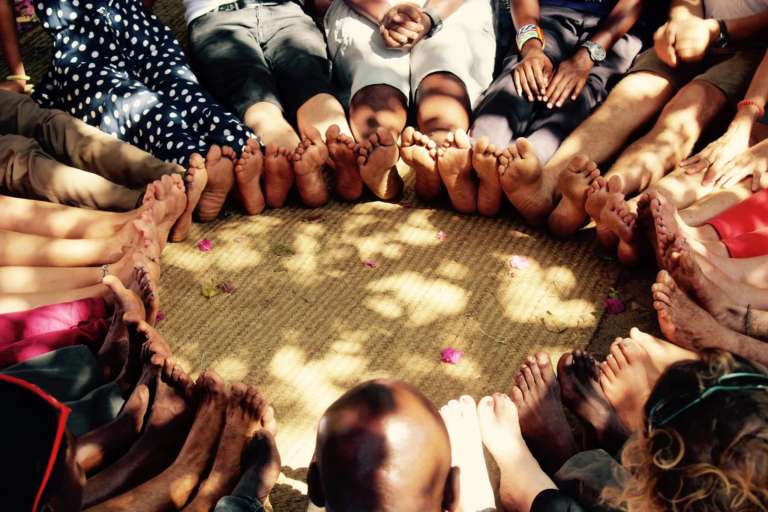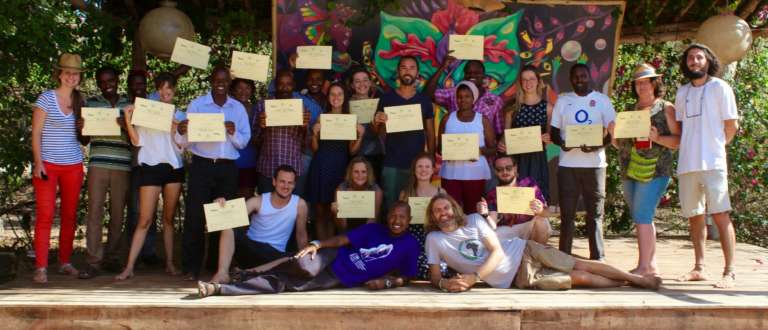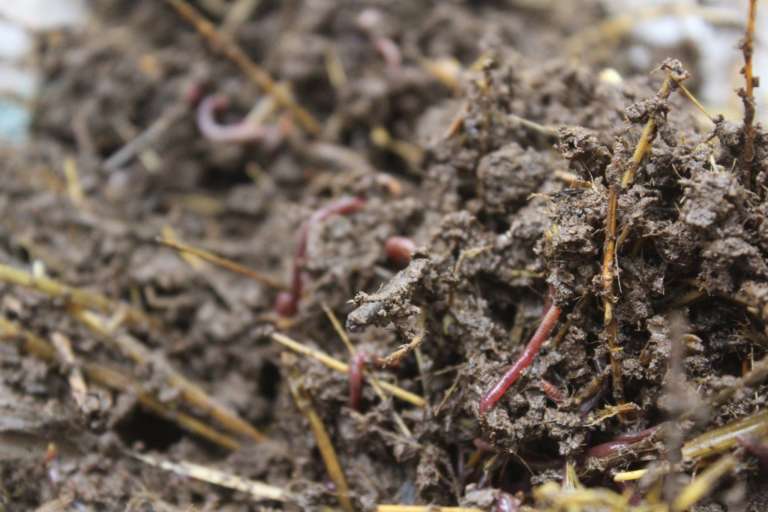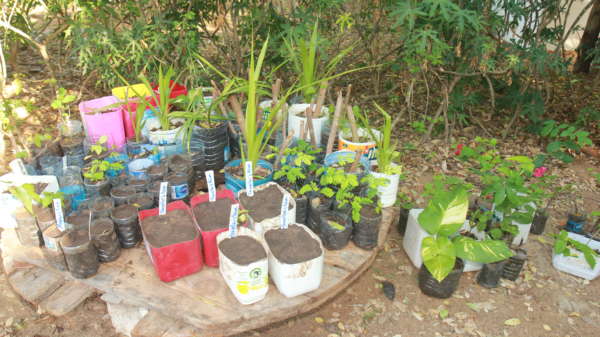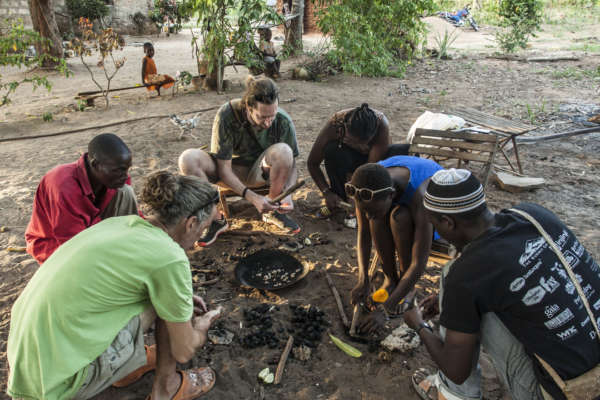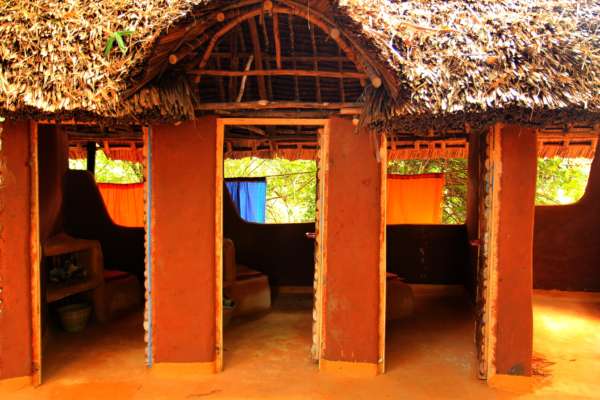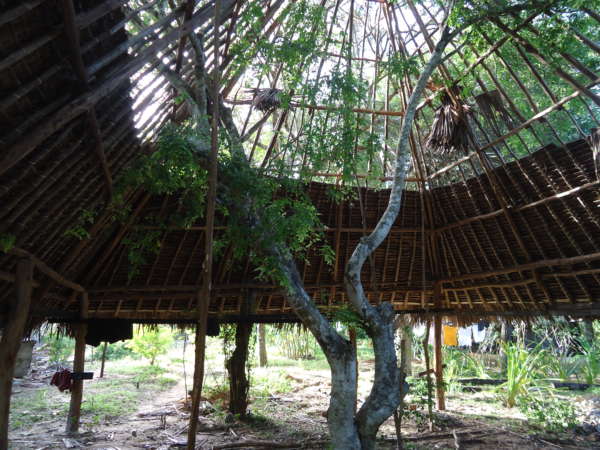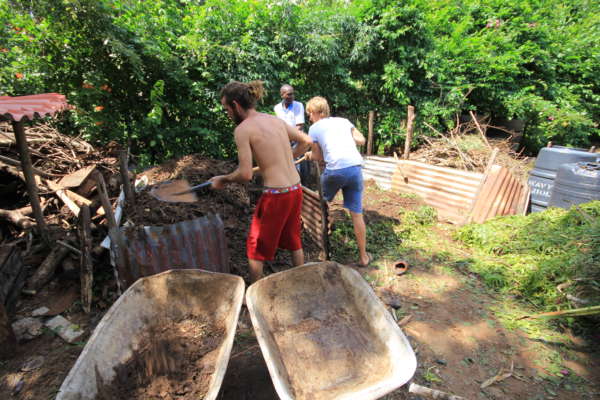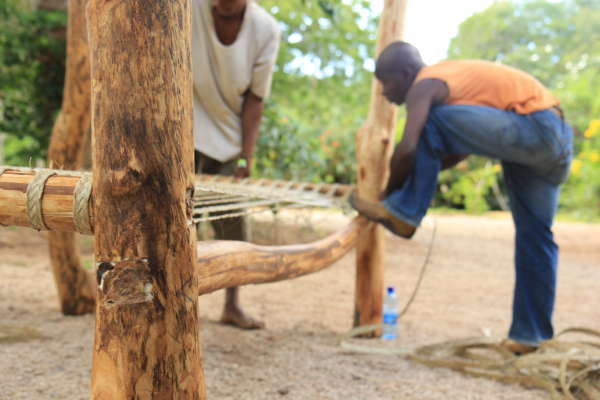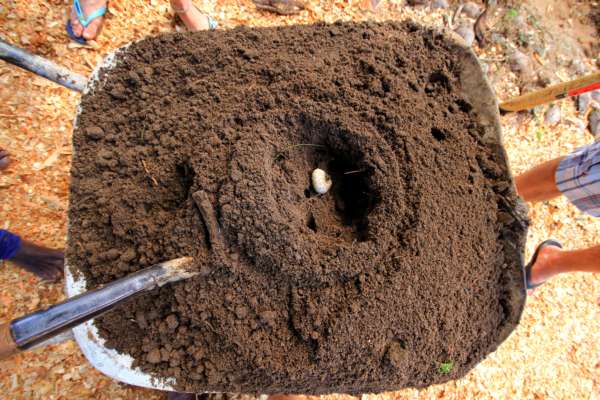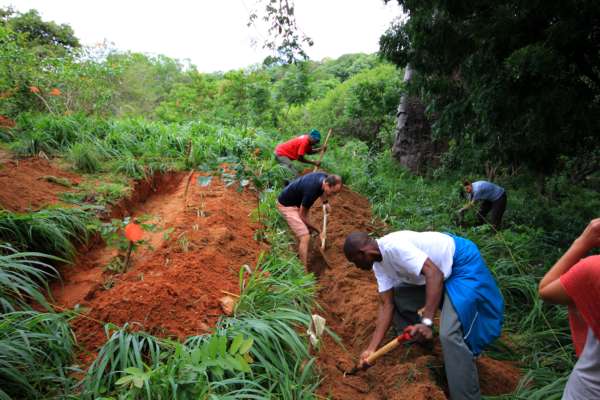Permaculture & Sustainability
The ECO side of things
Here at Distant Relatives Ecolodge, you’ll quickly notice we do things a little differently. But, what does it really mean to be an “eco-lodge” and why does it matter?
As owners we have always had a passion for sustainability: an idea centered around mindfully living which promotes long term social, cultural, and environmental prosperity with the future generations in mind. One of the owners, Jeremiah Kidd, from San Isidro Permaculture teaches Permaculture all around the world while Romain Mari, one of the founders, studied Natural Resource Management at University. The rest of the team are all equally passionate and dedicate to promoting sustainable living and we are always eager to apply these principles to the real world wherever we can. What we have done has come from the heart, often through trial and error and achieved through patient perseverance. In every step of building and growing Distant Relatives, we have placed as much emphasis as we can on the responsible management of all social and environmental aspects involved and affected by this project. We were pleased to be certified by Ecotourism Kenya.
We are very aware that there is so much more we could do and there will always be. We are always excited to learn and to slowly, constantly improve. Here is what we have done thus far:
Waste Management
“Reduce, Reuse, and Recycle” is the philosophy at the forefront of our approach to responsible resource and waste management.
Our organic waste is composted or fed to our resident poultry. Our gray water (water from sinks and showers) is used for watering our gardens, and terraces after being filtered by a natural filtration system.
Plastic bottles and containers are either reused, up-cycled or recycled. Our metal waster is collected by scrap metal dealers who then find ways to give it a second life.
Glass bottles are also cut for glasses at the bar and for sale at the Boutique, and also used as light covers for pathways, as well as decorative construction materials in walls. As much as possible, everything we no longer use is mindfully repurposed or recycled – lots goes into art projects on site or at Beneath the Baobabs Festival.
We also regularly go door to door in Kilifi to collect people’s glass bottles as well as old tires from garages to build walls or terraces. We have upcycled upwards from 500 tires when building our Bandas and Beach Volleyball Court.
- Water
- Organic Gardens
- Compost Toilet
Our 500 square meter roof surface allows us to collect vast amounts of rainwater which we can then use for our showers, kitchens and swimming pool. Water from showers and sinks are channeled into features known as “Banana Circles” where the bananas trees then soak up water and hold it furthermore with their roots – usually in combination with Papayas, passion fruit and ground cover like pumpkins or sweet potato.
Waste water coming from our kitchens is channeled to a Natural Grey Water System designed and built by Green Water Sanitation Solutions – a biological filtration system featuring reed beds (and other plants) allowing for the dirty water to be filtered naturally by sand, reeds, and rocks and then used to irrigate our terraced gardens, our vermiculture unit, and composting area.
Our gardens features tens of different fruit trees and productive plants – banana trees, guavas, mangos, lemons, limes and oranges, moringas, avocados, starfruit, passion fruits, pitango cherries, custard apples, sour sop, pineapples, and so many more as well as all kinds of flowers and indigenous trees. Our nursery and all our gardens are 100% organic – fed by homemade manure and compost, Vermiliquid, light, water and love especially! Pests are managed by spraying chilli or neem sprays.
Human waste is collected in 200 liter barrels, patiently composted during 9 months in the sun, and naturally turned into fertilizer. This radical approach to water conservation has allowed us to not only to dramatically cut back on water usage, but also the opportunity to constantly be improving our soil fertility.
This system has proven to work amazingly well and we regularly share the design with schools and projects in East Africa who realized how this approach transforms two problems (water usage in drought affected areas and water table pollution from black water waste) into three solutions (reduce water usage, improve soil quality and avoid polluting the water table). We estimate to have created 150 tons of humanure since 2014 and that this designed has allowed us to save up to 200 cubic meters per year.
Construction
All the wood used for furniture is either up-cycled from old shattered boats purchased from fishermen, driftwood, or from non-native and/or invasive species (usually the Neem tree) and assembled by local carpenters.
Our Bandas and Dorms use a combination of local and traditional Swahili designs, with a twist – the structures are made using a local mud-building technique.
Our Bandas are built around old-grown indigenous trees, with minimized use of cement, banned use of rare and endangered woods (however beautiful and accessible such as Mangrove wood), and we upcycled thousands of glass bottles during the construction.
Hundreds of glass bottles have been collected and used for our pathway light shades. We have up-cycled more than 500 car and truck tires from town destined to be burnt for most to build retaining walls, help prevent land erosion, and secure infrastructure.
- Soil improvement: We believe that we are guests on this planet and that we never own the land we live on: we are only guests. Our responsibility is to improve the soil quality of this land during our stay and hand it over to the next person in an improved state. This is what we do to improve our soil quality:
- Compost
- Vermiculture
- Erosion Prevention
- Animals
Our composting system deals with all our organic food waste, scrap woods, recycled roofing material, garden waste and humanure. The compost is constantly improving our soil fertility and keeping massive amounts of waste out of local landfills.
Our commercial scale worm farm feeds on a portion of our organic waste and in return we are gifted high quality Vermi liquid (incredibly rich fertilizer), and worm castings (extremely fertile soil) which we then use to aid our composting system, gardens, and tree nursery. The worms are available to the wider community and to others interested in starting their own wormery.
A series of swales (shallow ditches on contour), allow for the slow uptake of water across the landscape in times of rain. As mentioned above, we also upcycle tires as erosion control mechanisms in the form of staircases, barriers, and foundations.
We have ducks and chickens on site and we bring in manure from neighbors’ cows which is regularly fed into the compost areas or directly into ornamental garden spaces and around fruit trees scattered across the property.
Education
In partnership with Barefoot Solutions we have been able to host several courses each year on wastewater treatment, Permaculture Design Courses, practical permaculture applications, eco-building, and more.
Over the past few years more than 300 participants have been certified through an internationally recognized course syllabus with local and internationally renowned instructors from the UK, USA, and Zimbabwe.
By using this space as a classroom participants from different backgrounds, cultures, and continents have had the opportunity to learn together, network, and design their own resilient systems. We also offer free permaculture tours to local youth through school field trips as well as to any guests interested.
We also open positions for volunteers to come learn and work alongside us during certain seasons of the year. For each Permaculture Design Course, we sponsor students from the local area who cannot afford it but express interest in joining.
Supporting the local economy
We connect our guests with local tour guides and companies so as to support the neighborhood and local economy while helping our guests experience local culture.
Village tours on motorcycles, village dinners with traditional cuisine, sunset sailing on local traditional boats, fishing and snorkeling are all activities easily accessible through this partnership.
We buy all of our products locally, directly from the market and from the fishermen, or local shops and our construction and maintenance is all thanks to local knowledge and materials.
We are yet to calculate an estimated amount that Distant Relatives and its guests would have contributed cumulatively over the past 8 years – it would be a very significant amount without a doubt.

